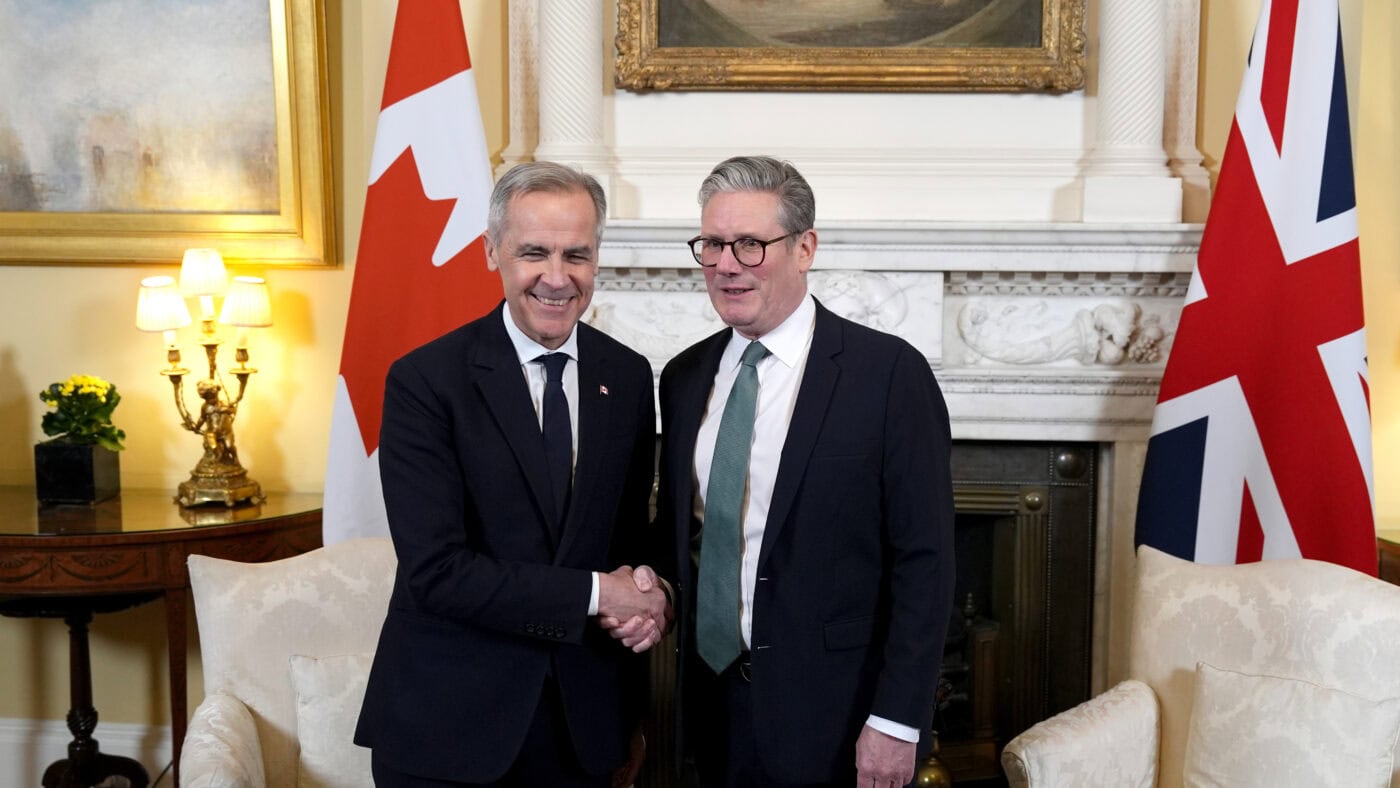The King and Queen of Canada have made it home to open the 45th Session of Parliament.
While King Charles III is the Canadian head of state through the development of unique constitutional doctrines, he, of course, remains the British monarch. Their Majesties’ presence in Canada raises the question of where the long-standing relationship between the United Kingdom and the ‘Great Dominion’, in the words of Winston Churchill, stands, and where it might go. Unfortunately, that’s a question the UK seems unprepared to answer.
Under Keir Starmer, the UK Government has signalled weakness internationally at precisely the moment that a revitalisation of the relationships between the key powers of the British Commonwealth makes all the sense in the world.
Most recently, the UK handed the Chagos Islands to Mauritius – a ‘strategic partner’ of Communist China – on the grounds that the United Nations has called Britain’s legitimate sovereignty over the territory into question. This is despite long standing status-quo arrangements and the vital strategic interest that the UK and the US have in their joint military base at Diego Garcia within the island chain.
This decision preemptively caves to a growing body of United Nations votes calling its possession of the island chain illegal. While the United Nations remains an important pillar of international architecture, it is also mired in controversy. As George W Bush once said, a great democracy like the United Kingdom ‘doesn’t need a permission slip’ to defend its legitimate and long-standing national security interests.
This move also follows the UK ignoring Canada’s sovereignty skirmish with the United States, during which time the Starmer administration invited Trump to an unprecedented second state visit. Our own Prime Minister, Mark Carney, voiced proper disappointment with that decision. As Canada’s most historic ally, constitutional sibling, and former guardian, the United Kingdom should be signalling solidarity with its sister realm but instead chose grovelling to the American head of state in the pursuit of the UK’s narrow self interest.
And finally, the Starmer administration has walked back significant Brexit parameters, giving Brussels back whole categories of legal and regulatory rule making authority.
Taken together, these decisions look like a UK that is weak and adrift when it should be underlining its sovereign decision making and deepening links with its historic Commonwealth allies. Rather than handing power back to Europe, shamefully ignoring sovereignty threats to Canada, or putting strategic assets into the hands of Communist China, it should be move forward on the long-called for CANZUK trade and security pact (so-called because it refers to the four leading powers of the Commonwealth, being Canada, Australia, New Zealand and the United Kingdom).
Combined, the Commonwealth bloc represents some $6.5 trillion in economic output, compared to $19trn for the European Union, $18trn for China and $27trn for the United States. Unlike the EU, it could and should operate without a supranational bureaucracy, but by legislative and regulatory harmonisation and deepening trade and security links. It represents an opportunity to harmonise educational, vocational and professional recognition that could extend global entrepreneurial, academic and professional opportunites to nearly 140,000,000 citizens of these four nations.
And perhaps most importantly, it would instantly represent a new pole of power for the people of these nations when the reliability of their post-war Leviathan, the United States, shows callous disregard for alliances, trade and even apathy in the face of armed aggression by dictatorships abroad.
This concept of a modern and revitalised British Commonwealth is not a silver bullet. Canada should be diversifying its trade and security relationships aggressively, while also shoring up its relationship with the United States. Geographic proximity tends to drive four fifths of global trade, while treaties account only for the last 20%. The new geopolitical status quo of armed conflict, democratic backsliding and American unreliability will continue to require the full range of Canada’s diplomatic and economic imagination to achieve prosperity and safety.
Still, a revitalised British Commonwealth could be a significant part of the path forward – but only if the United Kingdom finds the strength to embrace the full weight of its power, the full opportunity presented by current geopolitical disruption and the full breadth of its closest Commonwealth alliances.
That would be a partnership fit for a king – of all four countries.
Click here to subscribe to our daily briefing – the best pieces from CapX and across the web.
CapX depends on the generosity of its readers. If you value what we do, please consider making a donation.


